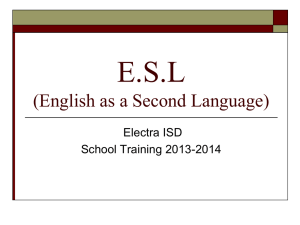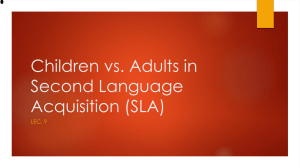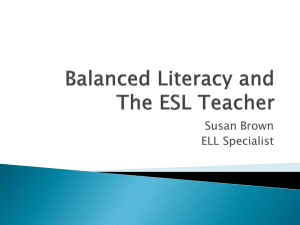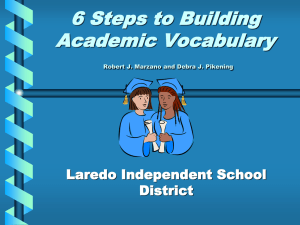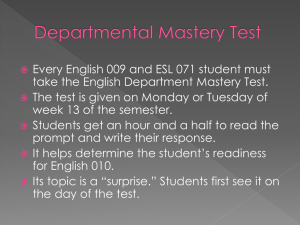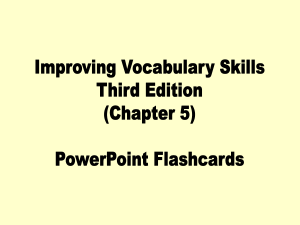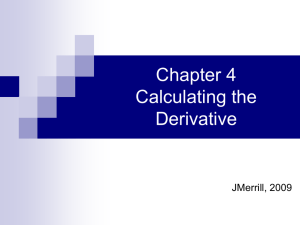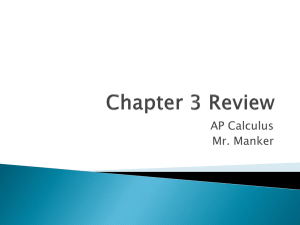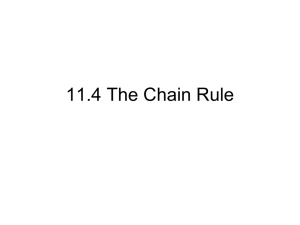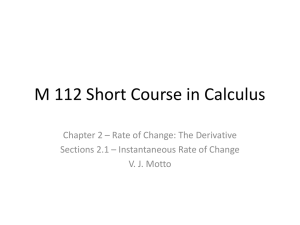Derivative word forms: What do learners know?
advertisement
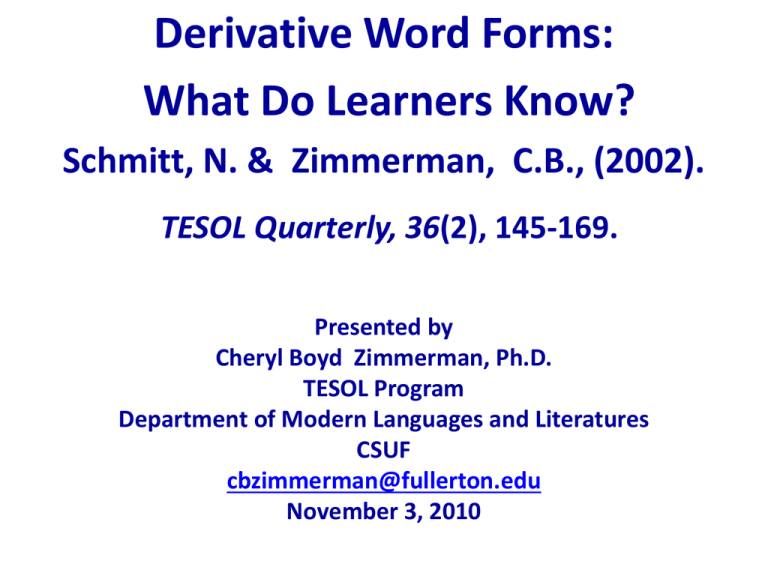
Derivative Word Forms: What Do Learners Know? Schmitt, N. & Zimmerman, C.B., (2002). TESOL Quarterly, 36(2), 145-169. Presented by Cheryl Boyd Zimmerman, Ph.D. TESOL Program Department of Modern Languages and Literatures CSUF cbzimmerman@fullerton.edu November 3, 2010 Background of Study Common Assumption Previous Research Resulting Research Design for this Study Examples of Words from The Academic Word List (AWL ) Coxhead, A. (2000). A new academic word list. TESOL Quarterly, 34, 213-238. Authority Assume Traditional Select Philosophy Access Ethnic Liberal Minimum Release Survive Ideology Inevitably Coherent Persist Research Design Word Family Knowledge is studied in how it relates to Overall Word Knowledge. Overall word knowledge is addressed with a scale approach (Test of Academic Lexicon: TAL) Word Family Knowledge is addressed with a productive derivative test (Later referred to as Test of English Derivatives: TED) Test of Academic Lexicon (TAL) A I don’t know the word 1. Stimulate 2. Sloist B I have seen the word before but am not sure of the meaning. C D I understand I know the the word word and can when I see or use it in my hear it in a own speaking sentence but and writing I don’t know [If you select how to use it this one, in my own please write speaking or a SENTENCE writing. which uses the word and shows its meaning. ] Test of English Derivatives (TED) Example: Precise Noun Verb Adjective Adverb A doctor must work with ________. A doctor ___________. Medical care requires _____ work. Doctors must work _____________. Test of English Derivatives (TED) Example: Precise Noun Verb Adjective Adverb A doctor must work with precision. A doctor _____X______. Medical care requires precise work. Doctors must work precisely. Derivative Forms Produced for Words Rated at Each TAL Level (Abridged form of Table 3 ; n=86) A B C D 50.6% 60.9% 55.8% 68.1% 57.5 73.8 46.3 53.7 42.9 48.0 ALL WORDS ESL 35.9% 44.2% NOUNS ESL 23.5% 38.6% VERBS ESL 26.1% 54.0 ADJECTIVES ESL 47.1 40.3 ADVERBS ESL 47.1 43.8 Derivative Forms Produced for Words Rated at Each TAL Level A B C D ALL WORDS ESL 35.9% 44.2% 50.6% 60.9% MA-ELT 87.5 83.3 74.1 79.4 ESL & MA-ELT 36.8 44.8 53.0 65.5 - - - 91.2 Native Speakers Words for Which Participants Produced Zero, One, Two, Three and Four Derivative Forms ESL & MAELT 0 1 2 3 4 5.5 18.3 28.4 29.5 18.2 Conclusion • So the jump from receptive to productive knowledge is reflected in better mastery of productive derivative forms in each of the 4 word classes. But • The assumption that learners automatically pick up the various derivative forms is probably incorrect. Bottom Line To Know a Word means to know a great deal about it. Derivative knowledge cannot be taken for granted.

